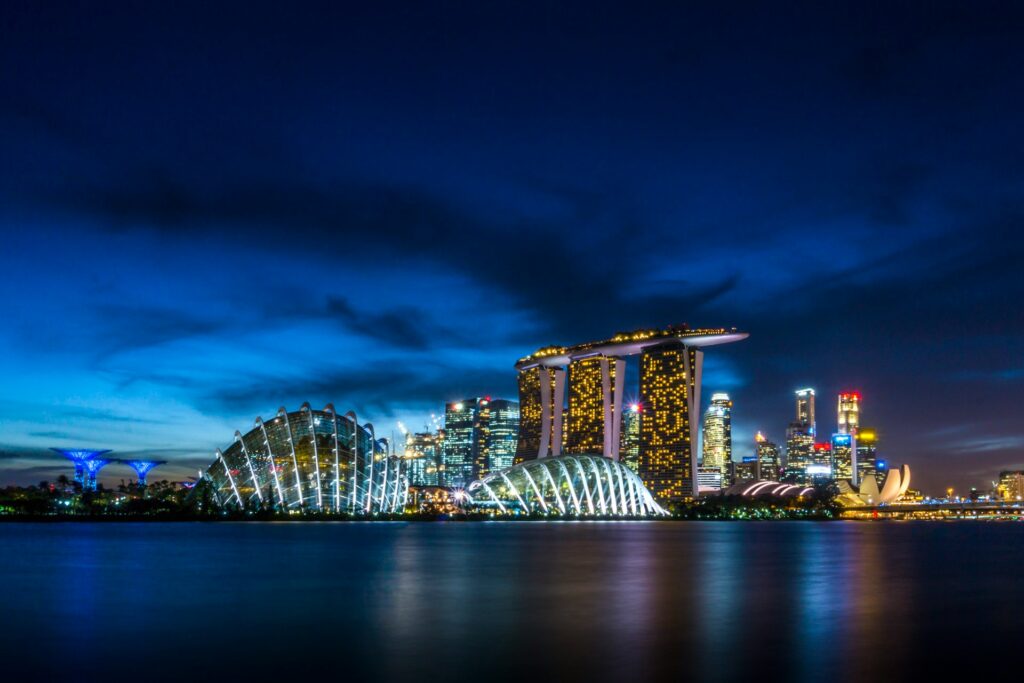
Singapore, officially the Republic of Singapore, is a sovereign city-state located at the southern tip of the Malay Peninsula in Southeast Asia. Renowned for its remarkable transformation from a trading port into a global financial and technological hub, Singapore has become a model of rapid economic development and efficient governance. The city-state’s strategic location along major shipping routes has significantly contributed to its status as one of the world’s busiest ports and a center for international trade.
Education in Singapore is highly esteemed worldwide for its excellence and rigor. The government places a strong emphasis on a bilingual education system, ensuring that students are proficient in English and at least one mother tongue, which supports both global connectivity and cultural identity. Singapore’s education system is structured to foster critical thinking, innovation, and a strong work ethic, which in turn cultivates a skilled workforce that drives the nation’s continued prosperity.
Multiculturalism is a cornerstone of Singaporean society. With a diverse population comprising primarily of Chinese, Malay, Indian, and Eurasian communities, Singapore celebrates a rich tapestry of traditions, festivals, and cuisines. This cultural diversity, combined with progressive social policies, has created a cohesive and dynamic society that values both heritage and modernity.
1. Intake and Application Cycles
- Primary Intake:
The majority of undergraduate programs commence in August/September. Prospective students should note that application deadlines typically fall between November and January of the preceding year. - Additional Intakes:
Certain postgraduate or specialized programs may offer a January intake. Applicants are advised to verify specific program schedules on the respective university websites.
2. Required Documentation for Admission
Applicants are generally required to submit the following:
- Academic Records:
- Official transcripts and certificates (e.g., secondary school leaving certificate, A-levels, or International Baccalaureate scores).
- Certified translations if the original documents are not in English.
- Standardized Test Scores:
- Some programs may require scores from tests such as the SAT, ACT, or relevant entrance examinations.
- Proof of Language Proficiency:
- For programs taught in English: IELTS, TOEFL, or equivalent certificates are required.
- Personal Identification:
- A valid passport copy.
- Application Materials:
- Completed application form (often submitted online via the university’s portal or through centralized platforms such as Uni-Assist).
- Curriculum Vitae (CV) or resume.
- A personal statement or statement of purpose.
- Letters of recommendation (if specified by the program).
- Additional Requirements:
- Some courses, particularly in creative fields, may request portfolios or supplementary essays.
- Proof of financial resources, such as a blocked account, may be required for visa processing.
3. Accommodation Options
- On-Campus Housing:
Most public universities in Singapore provide dormitory facilities or student halls. The weekly costs for on-campus accommodation typically range from SGD 200 to SGD 400, with some packages inclusive of meals and utilities. - Off-Campus Housing:
A variety of rental options are available off-campus. Many students choose shared apartments to minimize costs, and rental prices vary based on location and facilities.
4. Approximate Fee Structure
- Public Universities:
- Citizens/Permanent Residents: Subsidized fees generally range from approximately SGD 8,000 to SGD 15,000 per academic year.
- International Students: Annual fees tend to range between SGD 20,000 and SGD 40,000, depending on the course and institution.
- Private Universities:
Tuition fees at private institutions are typically higher and may exceed SGD 20,000 per year, with certain specialized programs incurring even greater costs.

